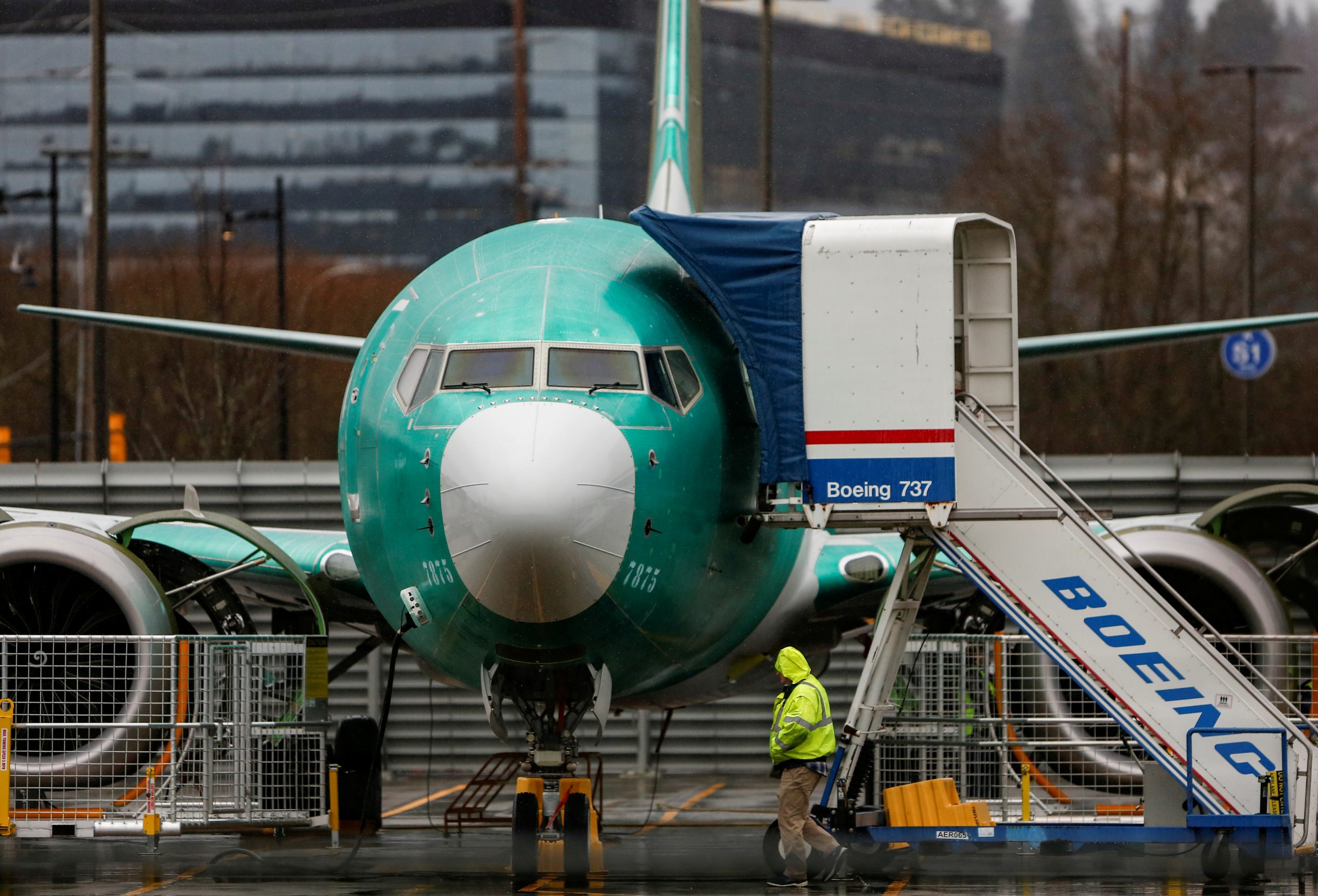
[elfsight_social_share_buttons id=”1″]
A former chief technical pilot for Boeing Co. was charged with fraud on Thursday for deceiving federal regulators evaluating the company’s 737 MAX jet, hindering the ability to protect airline passengers and leaving “pilots in the lurch,” the U.S. Justice Department said.
Mark Forkner, 49, was indicted by a grand jury in Texas on six counts of scheming to defraud Boeing‘s U.S.-based airline customers to obtain tens of millions of dollars for Boeing, the government said.
Boeing declined to comment. A lawyer for Forkner did not immediately respond to a request for comment.
According to the indictment, Forkner, largely in the run-up to the Federal Aviation Administration’s decision to approve the 737 MAX in 2017, provided the FAA Aircraft Evaluation Group with “materially false, inaccurate, and incomplete information” about a new part of the flight controls for the Boeing 737 MAX, called the Maneuvering Characteristics Augmentation System (MCAS).
The MCAS, a software feature designed to automatically push the airplane’s nose down in certain conditions, was tied to two fatal crashes of the 737 MAX over a five-month period that killed 346 people and led to the FAA’s grounding the plane for 19 months, an action which was lifted in November 2020.
“In an attempt to save Boeing money, Forkner allegedly withheld critical information from regulators,” said Chad Meacham, the acting U.S. attorney for Northern Texas. “His callous choice to mislead the FAA hampered the agency’s ability to protect the flying public and left pilots in the lurch, lacking information about certain 737 MAX flight controls.”
The FAA declined comment.
In January, Boeing agreed to pay more than $2.5 billion in fines and compensation after reaching a deferred prosecution agreement with the U.S. Justice Department over the MAX crashes, which cost Boeing more than $20 billion.
The January agreement faulted Boeing‘s conduct and said it was holding the largest U.S. planemaker “accountable for its employees’ criminal misconduct.”
In January, Boeing admitted in court documents that through two former employees it deceived the FAA about the MCAS.
Prosecutors noted that a key FAA document lacked any reference to the MCAS, and as a result airplane manuals and pilot-training materials for U.S.-based airlines also lacked any reference.
One November 2016 message from Forkner said he was working at “jedi-mind tricking regulators into accepting the training that I got accepted by FAA.”
If the FAA required pilot simulator training for MAX pilots, Boeing would have been required to pay Southwest Airlines nearly $400 million to offset the simulator-based pilot training requirements, a 2020 U.S. House of Representatives report said.
In 2019, the FAA required simulator training before pilots could resume flying the MAX.
Forkner is charged with two counts of fraud involving aircraft parts in interstate commerce and four counts of wire fraud. He is expected to make his initial court appearance Friday in Fort Worth, Texas.
If convicted, he potentially faces decades in prison.
(Reporting by David Shepardson; Additional reporting by Eric Beech; Editing by Leslie Adler and Rosalba O’Brien)
Copyright 2021 Thomson/Reuters
